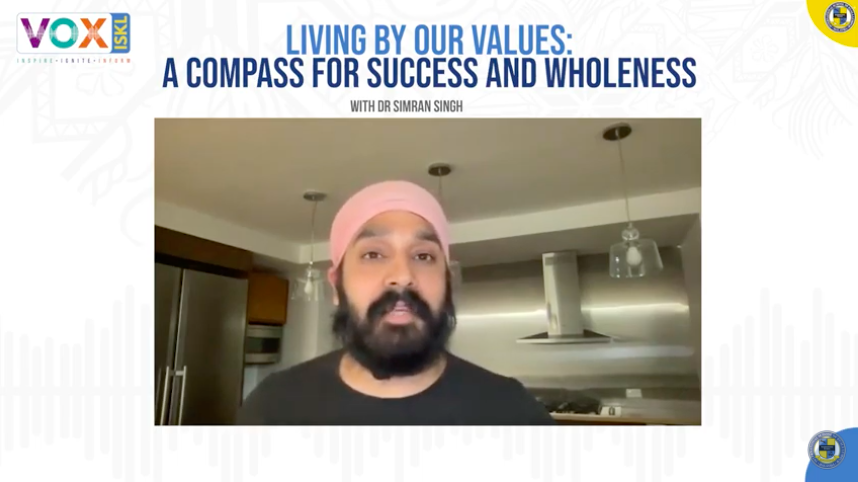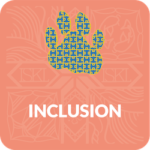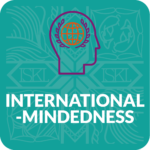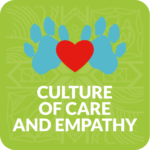
Here at The International School of Kuala Lumpur (ISKL), we believe that schools have a moral responsibility to cultivate communities like ours that support individuals and nurture and value their identities and differences. Our focus on Diversity, Equity, Inclusion, and Justice (DEIJ) is an essential component of our inclusion learning journey, and we are committed to creating a safe and courageous school culture.
This is especially important for ISKL, as our diverse and international student base creates an environment based on mutual respect and understanding. We have a comprehensive range of school-wide events to celebrate the diversity of our school to support students in becoming socially responsible global citizens, one of them being the newly launched VOX ISKL series. VOX ISKL is meant to be the platform that will inspire, inform, and ignite conversations about current global issues and trends to the wider community.
The first episode of VOX ISKL dived into values and what it meant to live by them. Joined by ISKL’s community and individuals around the globe, the webinar featured award-winning American educator, activist, writer, and scholar Dr. Simran Singh, who frequently offers comment and analysis on religion, racism, and justice in line with ISKL’s focus on DEIJ. Entitled “Living by Our Values: A Compass For Success and Wholeness,” Dr. Singh guides participants in creating a values-based vision with tips on cultivating these values by transforming from idealized aspirations into deeply embedded aspects of one’s character.
The hour-long webinar session conducted via Zoom began with Dr. Singh recounting his childhood as a turban-wearing, brown-skinned, beard-loving Sikh living in Texas. One story that struck out most was an incident when he was 12 years old buying weekly groceries. A shoplifting attempt caught by his mom taught Dr. Singh his first lesson on the inseparable relationship between integrity, accountability, and inner happiness. She told the story of the Sikh guru who bestowed a distinctive appearance, their identity that would hold them accountable to their values.
“(Wearing the) turban is a public statement that you wear on your head. It is a signifier that you will always do the right thing, and if you’re not willing to honor that, then maybe you should stop wearing it,” his mother told him.
The comment made him realize that his mother talked about the importance of always doing the right thing whether people were looking or not – in other words, integrity.
“The problem is we do not realize that our daily decisions, our minute by minute decisions can make the difference between a life of joy and a life of shame. Every decision matters because every decision shapes who we are and who we become,” he said.
Dr. Singh also did an exercise with the audience where he asked them to come up with a mission statement on “What are you here for, your mission in this world, and what do you aspire to do.” He then asked the participants to think about their core values and type them in the chat box. Some of the answers from the audience included values such as honesty, integrity, and compassion.
“What’s valuable here is to be intentional about how we want to live in this world,” he said before concluding the exercise.
Dr. Singh’s life turned upside down when in 2015, he tweeted a photo of himself holding a ‘clock’ at his workplace – in solidarity with a Muslim boy who was arrested in Texas for taking a homemade clock to school which was suspected to have been a bomb, as he was Muslim.
The social media post gained massive traction, and his act of solidarity made it on mainstream news channels such as Al-Jazeera and BBC. With the overnight fame came the unexpected backlash; a Texan campaign from his hometown – demanding him to be fired for his Tweet. His dream job was at risk, and what saved him was his values – as it turned out that after a review of his social media accounts, Dr. Singh had no history of posting any hateful or incendiary comments as the campaign organizers had originally claimed.
On how schools can support students in living their values, Dr Simran addressed the audience by stating that one has to open themselves up to a more humanistic approach that allows for malleability and internal diversity within one’s children. Ms. Praxia Apostle, ISKL’s Teaching and Learning Director concurred with ISKL’s set of values, The Melawati Way, that encourages Elementary School students to “Take Care of Yourself, Take Care of Others, and Take Care of This Place.”
“As a school culture, we try to stay consistent with that. And that’s a way for kids to get anchored back into their values and think about what that looks like for them at particular moments,” Praxia commented.
A few more questions were asked, from embracing the values of honesty in a post-truth world to the two books that Dr. Singh rereads each year, which are The Four Agreements by Don Miguel Ruiz and Atomic Habits by James Clear.


 The session ended with participants having a clearer understanding of the need to identify essential values to live authentically.
The session ended with participants having a clearer understanding of the need to identify essential values to live authentically.
The first session of VOX ISKL had indelibly left a mark to participants in living a life filled with intent.
Head here to watch the full video on ISKL’s YouTube channel or listen to the podcast on Spotify. Don’t miss out on future VOX ISKL events by subscribing here!


